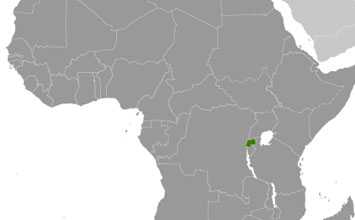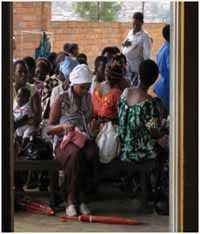
The CDC office in Rwanda was established in 2002 with support from the U.S. President’s Emergency Plan for AIDS Relief (PEPFAR) and CDC’s Division of HIV/AIDS and TB. In 2006 the President’s Malaria Initiative (PMI) and influenza programs were added. New projects on noncommunicable diseases are being initiated. CDC Rwanda staff specializes in epidemiology, laboratory services, HIV prevention, care and treatment, health policy, surveillance and informatics, program management, and monitoring and evaluation.

CDC Staff
9 U.S. Assignees
38 Locally Employed

Rwanda at a Glance
Population: 11,331,300
Per capita income: $1,530
Life expectancy at birth women/men: 66/63 yrs

Top 10 Causes of Death
- Lower Respiratory Infections
- HIV
- Diarrheal Diseases
- Congenital Birth Defects
- Cancer
- Preterm Birth Complications
- Encephalopathy
- Neonatal Sepsis
- Protein Energy Malnutrition
- Road Injuries
Source: Population Reference Bureau: Rwanda, 2015
Source: GBD Compare: Rwanda, 2015
What CDC Is Doing
Our Stories
- How We Started – The CDC Rwanda Story
June 26, 2017 - Celebrating 15 Years of CDC in Rwanda
June 26, 2017 - Rwanda Stories page
March 2, 2017 - Using U.S. Strength to Make a Difference in the Lives of Children.
March 2, 2017
- Page last reviewed: June 30, 2017
- Page last updated: June 30, 2017
- Content source:
Global Health
Notice: Linking to a non-federal site does not constitute an endorsement by HHS, CDC or any of its employees of the sponsors or the information and products presented on the site.



 ShareCompartir
ShareCompartir


